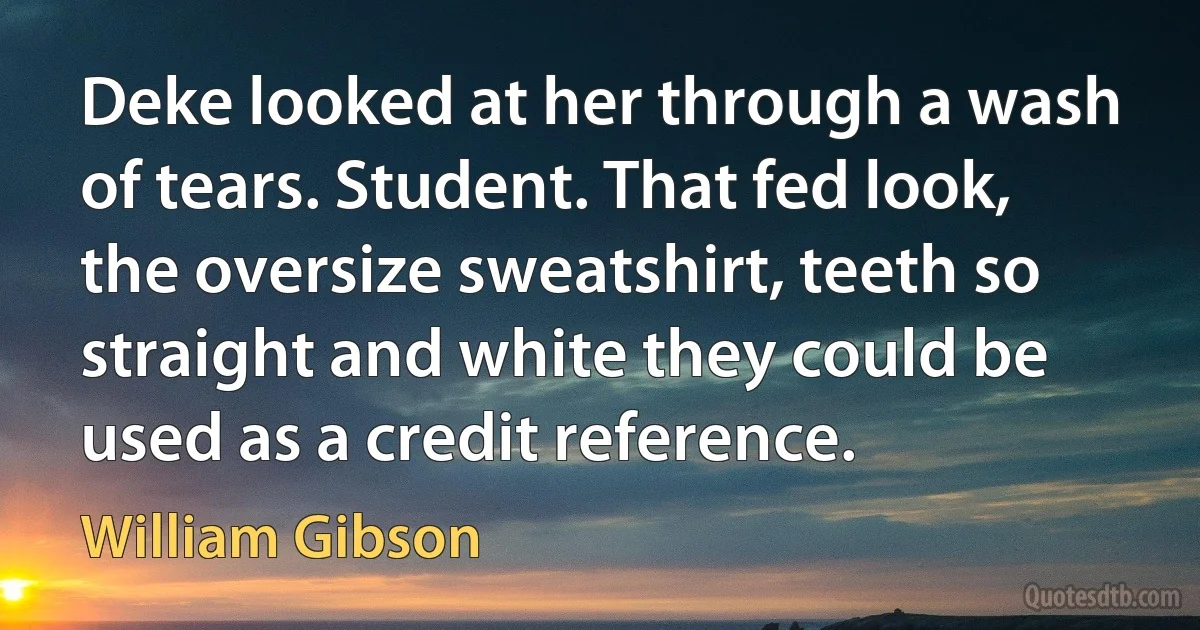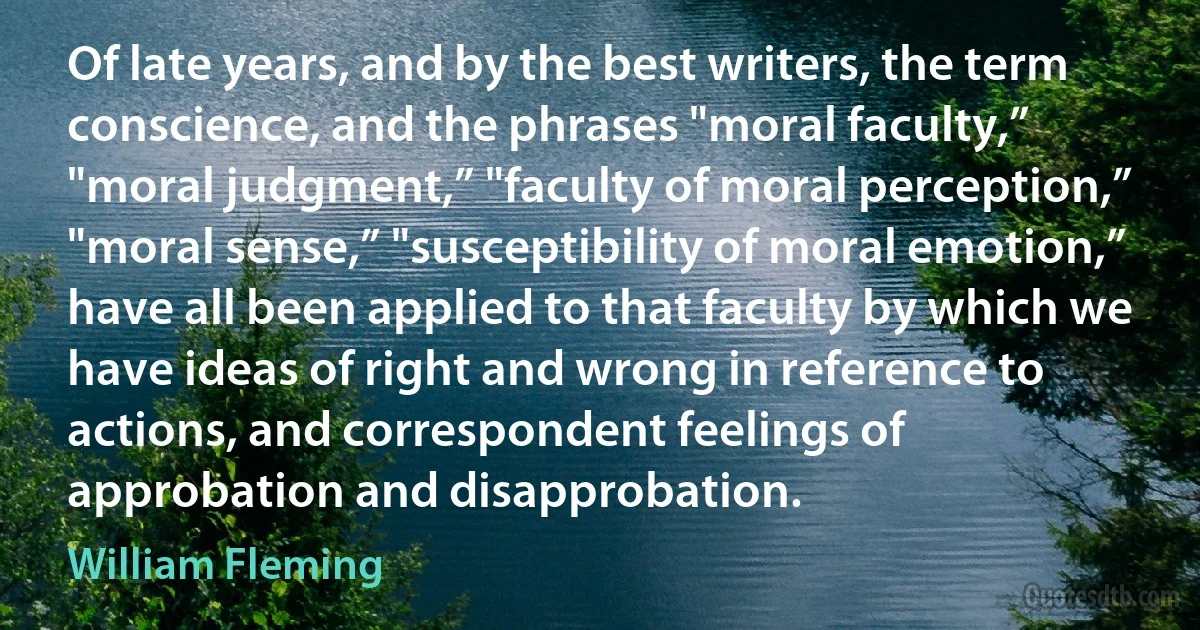Reference Quotes - page 19
Wallis did not become interested in mathematics till the age of thirty-one, but devoted himself to the subject for the rest of his life. One of the earliest and most important books on algebra ever written in English was his treatise published in 1685. It contains a brief historical sketch of the subject which is unfortunately not entirely accurate, but his treatment of the theory and practice of arithmetic and algebra has made the book a standard work for reference ever since.

John Wallis
Awe is more than an emotion; it is a way of understanding, insight into a meaning greater than ourselves. The beginning of awe is wonder, and the beginning of wisdom is awe.
Awe is an intuition for the dignity of all things, a realization that things not only are what they are but also stand, however remotely, for something supreme. Awe is a sense for transcendence, for the reference everywhere to mystery beyond all things. It enables us to perceive in the world intimations of the divine, to sense in small things the beginning of infinite significance, to sense the ultimate in the common and the simple: to feel in the rush of the passing the stillness of the eternal. What we cannot comprehend by analysis, we become aware of in awe.

Abraham Joshua Heschel
Being is either open to, or dependent on, what is more than being, namely, the care for being, or it is a cul-de-sac, to be explained in terms of self-sufficiency. The weakness of the first possibility is in its reference to a mystery; the weakness of the second possibility is in its pretension to offer a rational explanation.
Nature, the sum of its laws, may be sufficient to explain in its own terms how facts behave within nature; it does not explain why they behave at all. Some tacit assumptions of the theory of insufficiency remain problematic.

Abraham Joshua Heschel
Sahebji, I am sorry I have been misunderstood. Forgive me for what I am being forced to say. The reference to freedom of speech was made by me in a specific context. It was not at all my intention to uphold the British usurpation of my country. Make no mistake. I consider the British Raj to be a curse. I stand for svarãjya [self-rule].

Dayanand Saraswati
To me, believing that some correspondence intrinsically just is reference (not as a result of our operational and theoretical constraints, or our intentions, but as an ultimate metaphysical fact) amounts to a magical theory of reference. Reference itself becomes what Locke called a 'substantial form' (an entity which intrinsically belongs with a certain name) on such a view. Even if one is willing to contemplate such unexplainable metaphysical facts, the epistemological problems that accompany such a metaphysical view seem insuperable. For, assuming a world of mind- independent, discourse-independent entities (this is the presupposition of the view we are discussing), there are, as we have seen, many different 'correspondences' which represent possible or candidate reference relations (infinitely many, in fact, if there are infinitely many things in the universe).

Hilary Putnam
I have never been entirely satisfied with the materialistic or behavioristic thesis that a complete explanation of brain function is possible in purely objective terms with no reference whatever to subjective experience; i.e., that in scientific analysis we can confidently and advantageously disregard the subjective properties of the brain process. I do not mean we should abandon the objective approach or repeat the errors of the earlier introspective era. It is just that I find it difficult to believe that the sensations and other subjective experiences per se serve no function, have no operational value and no place in our working models of the brain.

Roger Wolcott Sperry
In my opinion, dream interpretation as practiced by most Freudian psychiatrists, including some of mine at the Institute, is nothing more than a fancy system of guessing. I think trying to understand the ‘real' meaning of a dream without reference to the physical state of the dreamer is as pointless as trying to understand what a fever ‘means' without studying the body.

Connie Willis
When an individual appears before others, he wittingly and unwittingly projects a definition of the situation, of which a conception of himself is an important part. When an event occurs which is expressively incompatible with this fostered impression, significant consequences are simultaneously felt in three levels of social reality, each of which involves a different point of reference and a different order of fact.

Erving Goffman
The history of British Socialism cannot be written without constant reference to the Celts, and perhaps I may say in passing that this was one reason why I was so eager to see a Devolution Act passed through the House of Commons, to help keep the Celts within the United Kingdom. The blood of our Labour Movement cannot tingle properly without them, devolution or no devolution.

Michael Foot
We describe a Monarch by designating the territory of which he is Monarch. To say that he is Monarch of a certain territory and his other realms and territories is as good as to say that he is king of his kingdom. We have perpetrated a solecism in the title we are proposing to attach to our Sovereign and we have done so out of what might almost be called an abject desire to eliminate the expression "British." The same desire has been felt-though not by any means throughout the British Commonwealth-to eliminate this word before the term "Commonwealth." ... Why is it, then, that we are so anxious, in the description of our own Monarch, in a title for use in this country, to eliminate any reference to the seat, the focus and the origin of this vast aggregation of territories? Why is it that this "teeming womb of royal Kings," as Shakespeare called it, wishes now to be anonymous?

Enoch Powell
Some of Spinoza's ideas are part and parcel of our culture, but to the best of my knowledge Spinoza is absent as a reference from the modern efforts to understand the biology of the mind. This absence is interesting in itself. Spinoza is a thinker far more famous than known. Sometimes Spinoza appears to rise out of nothing, in solitary and unexplained splendor, although the impression is false-in spite of his originality he is very much a part of his intellectual times. And he appears to dissolve as abruptly, without succession-another false impression given that the essence of some of his forbidden proposals can be found behind the Enlightenment and well beyond in the century that followed his death.

Baruch Spinoza
You know that I do not share your opinion in this matter. That Spinozism and Atheism are to me two different things. That when I read Spinoza I can only explain him by reference to himself and that if it came to naming a book which, of all that I know, most agrees with my way of seeing things, then I would have to name the Ethics-even though by nature I do not share his way of seeing things. [Original in German: Du weißt daß ich über die Sache selbst nicht deiner Meinung bin. Daß mir Spinozismus und Atheismus zweyerlei ist. Daß ich den Spinoza wenn ich ihn lese mir nur aus sich selbst erklären kann, und daß ich, ohne seine Vorstellungsart von Natur selbst zu haben, doch wenn die Rede wäre ein Buch anzugeben, das unter allen die ich kenne, am meisten mit der meinigen übereinkommt, die Ethik nennen müsste.].

Baruch Spinoza
Nature has pointed out a mixed kind of life as most suitable to the human race, and secretly admonished them to allow none of these biases to draw too much, so as to incapacitate them for other occupations and entertainments. Indulge your passion for science, says she, but let your science be human, and such as may have a direct reference to action and society. Abstruse thought and profound researches I prohibit, and will severely punish, by the pensive melancholy which they introduce, by the endless uncertainty in which they involve you, and by the cold reception which your pretended discoveries shall meet with, when communicated. Be a philosopher; but, amidst all your philosophy, be still a man.

David Hume
I am at the moment trying to write a novel, a combat novel, which, in addition to being a work which tells the truth about warfare as I saw it, would free all these young men from the horseshit which has been engrained in them by my generation. I don't think that combat has ever been written about truthfully; it has always been described in terms of bravery and cowardice. I won't even accept these words as terms of human reference any more. And anyway, hell, they don't even apply to what, in actual fact, modern warfare has become.

James Jones
The president recently weighed in on marriage, and you know he said his views were evolving on marriage. Call me cynical, but I wasn't sure his views on marriage could get any gayer. Now, it did kind of bother me though, that he used the justification for it in a Biblical reference. He said the Biblical golden rule caused him to be for gay marriage. And I'm like, what version of the Bible is he reading? It's not the King James Version, it's not the New American Standard Version, it's not the New Revised version; I don't know what version he's getting that from.

Rand Paul
Well, I want him to answer the following question: Where in my speech was there any reference to anything that would jeopardise the rights of Albanians? So I'm quoting this to him. "In this area there should be a policy of national equality of rights, a spirit of tolerance should prevail. Everything that characterises a humane, democratic society.”.

Slobodan Milošević
the ultimate end, with reference to and for the sake of which all other things are desirable...is an existence exempt as far as possible from pain, and as rich as possible in enjoyments...This, being, according to the utilitarian opinion, the end of human action, is necessarily also the standard of morality; which may accordingly be defined, the rules and precepts for human conduct, by the observance of which an existence such as has been described might be, to the greatest extent possible, secured to all mankind; and not to them only, but, so far as the nature of things admits, to the whole sentient creation.

John Stuart Mill



